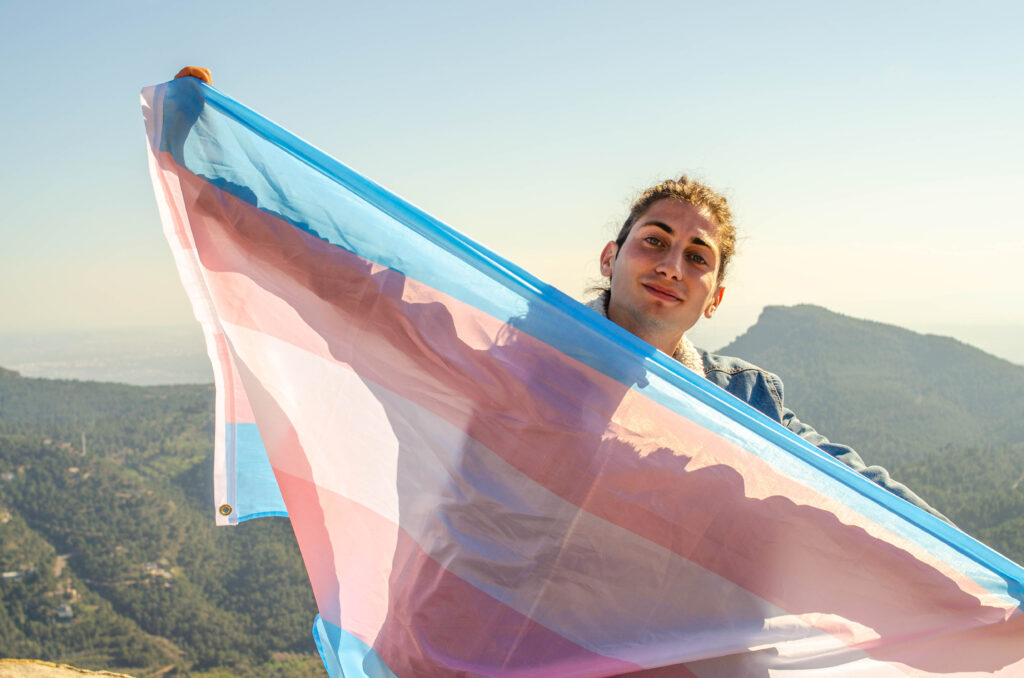
I came across an invitation as I was putting some cards in a drawer the other day. A fancy, paper invitation. It really stands out in a day of evites and social media events that someone mailed a personalized invitation for me to participate in something.
As you know, March 31 is Transgender Day of Visibility. I’ve been thinking about how intentionally we invite people into community. And who we focus on when we invite people to be a part of our community.
Some people have spent their entire lives being excluded. Sometimes family members reject individuals because of their identity or beliefs. Churches often send strong messages about who is welcome and who isn’t. Our society sends lots of messages about belonging and what one must do to be worthy of a place of belonging.
It’s no wonder that some people create “found family”—a community of mutual acceptance among people who share a similar history of rejection. Found family is a common theme in the trans community, as well as among other marginalized groups. It’s a way of saying, “If you are going to push us to the margins, we will thrive on the margins, with one another.”
As Unitarian Universalists, we say we want to draw the circle of welcome and acceptance wide enough that there aren’t any margins. And yet, how often to we send an invitation to those “found families” who don’t expect to be welcomed anywhere? How often do we seek out people who are accustomed to being rejected everywhere else?
Maybe we expect that if someone is looking for a place to belong, they’ll stumble across us on their own. It’s kind of like me hosting a party and not sending out any invitations, because I just assume people will know that it’s happening. Or maybe I just invite all the musicians I know and wonder why there are so few gardeners or pet groomers at my party.
When we host parties, though, we typically invite the people we want to be there. And we usually know who we want at a party because we’ve developed some kind of relationship with them. Sending an invitation is like saying, “I see you, and I want you to be a part of what I’m creating.”
Which is why Transgender Day of Visibility is more about who we choose to see than it is about who chooses to be seen. Some bold individuals might be courageous and make themselves visible—to insist that they will not be ignored or pushed to the margins. That’s risky. It’s not something everyone can do. Certainly not safely.
If we want people to be visible, we might have to be intentional about seeing them and make a little effort to say, “I see you. And you are absolutely amazing and worthy of being seen.”
If we want to build multi-cultural community, we might have to send out some invitations and say, “We see you, and we want you to co-create something amazing with us.” Which means, we might have to put a little effort into getting to know people first, before we expect them to take an invitation seriously.
When have you received an invitation that you didn’t take seriously? What was the difference between that invitation and the invitations that you cherished?
Rev. Randy Partain
Share this post: